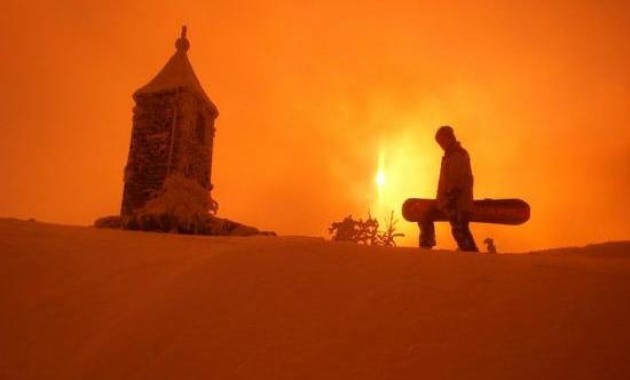
Russian Experts Call on Moscow to Turn North Caucasus into ‘Internal Turkey’
Publication: Eurasia Daily Monitor Volume: 10 Issue: 87
By:

Analysis provided by a group of Russian experts suggests that the Russian government should move away from large economic projects in the North Caucasus to creating a favorable environment for local entrepreneurs. In order to achieve the goal of steady economic development of the region, the government should make use of the strong attributes of the North Caucasus, such as its relatively low cost labor and substantial entrepreneurial class, turning the region into what they call an “internal Turkey.” It is noteworthy that the authors of the report start off by defending the North Caucasus as part of the Russian Federation and not a region outside the rest of the country, as ethnic Russians often refer to it. Large-scale government investment in the region creates a “budget market” and suppresses real market forces, argue the authors of the report (https://www.kavkaz-uzel.ru/articles/222451).
The usual hallmark of Russian expert assessment of the situation in the North Caucasus is that plausible explanations for the adverse processes in the region are combined with unrealistic recipes for success. The primary problem encountered by Russian experts is that to change the situation in the North Caucasus, political reforms are needed, not only economic reforms. Political reforms envisage democratic governance and rule of law. The problem with this approach is that undemocratic governance and a lack of legal protections are the features of the current Russian regime in general.
So however well the problems in the North Caucasus are diagnosed, there is no political will to implement the right solutions. Instead of a regular democratic political process and free and fair elections, Russian experts come up with elaborate schemes of creating public commissions, elders’ councils, elites’ assemblies, and so on in the region. The reason for such tortuous ways of reform in Russia’s periphery is that Russia proper needs the reforms just as much as the North Caucasus and they are nowhere in sight.
There is also an intrinsic contradiction in Moscow’s desire to spend less on the North Caucasus, provide employment for the locals and at the same time keep the region sufficiently tied to Russia. Russians are afraid that if the North Caucasus is too self-sufficient, it will be harder for Moscow to maintain control over it. Russian economists, therefore, try to devise schemes to ensure that North Caucasus development is accompanied by its incorporation into the Russian market, not the international market.
In the meantime, Russia’s political leadership acts against the recommendations of the experts on the region, curbing even the modest gains that participatory politics have made in the rest of the country. Dagestan and Ingushetia both have opted out of holding popular elections in September 2013, instead reverting to appointment of their governors by the Kremlin. While Moscow pretends these regions chose this way of changing the leadership, few observers doubt the Russian government “advised” them to do so. The increasing administrative control over the North Caucasus at the expense of self-governance promotes instability in the region and alienates the locals from Moscow, argues the well-known Dagestani expert Enver Kisriev. “The [Russian] authorities reckon that the [North] Caucasus appreciates only brute force and so it should be squeezed by brute force,” he said. “This is a huge mistake, because the [North] Caucasus indeed appreciates brute force and that is why it responds to brute force with brute force. Choosing this way of pacifying the [North] Caucasus is similar to pouring fuel onto fire” (https://www.kavkaz-uzel.ru/articles/223234/). Ironically, the Kremlin abolished direct elections for governors where they were needed most—in the North Caucasus—while the Russian government continued to bemoan the underdevelopment of this volatile region.
The North Caucasus ski resorts project is gradually fading from memory and is being replaced with other plans, less grandiose, but still substantial. In fact, the portfolio of investment projects in the region has increased to nearly $40 billion, compared to $33 billion in 2011. The most ambitious is a $5 billion construction project in the Makhachkala suburbs that should be finished by 2018. Nearly as ambitious is the plan to build a ski resort in the North Ossetian mountains for $4.8 billion. Given the fact that there are hydroelectric plants in the North Caucasus that have waited for completion since the 1970s, chances are not very high that the present plans will be implemented any time soon (https://kavpolit.com/otravlennye-dengi-dlya-kavkaza/). The government’s lofty plans for developing the North Caucasus appear to serve only the purpose of distracting the local elites from the lavish spending on construction for the Winter Olympics in nearby Sochi next year. After the Olympics are over, the cheap talk about expensive projects in the North Caucasus is also likely to dissipate.
The outside world should refrain from seeing violence, the spread of radical Islam and economic underdevelopment in the North Caucasus through Moscow’s prism. Russia is not simply putting down a senseless rebellion in the North Caucasus, but is part of the problem by actively suppressing the region’s political and economic development. In Putin’s Russia, social and political cleavages are almost bound to grow into large security threats and protracted conflicts. As Russian experts are caught between the hammer and the anvil, having to find narrow ways for reforming the North Caucasus without undermining Russian authoritarian rule, outside experts should not restrict themselves to such limited views of the situation in this region.




